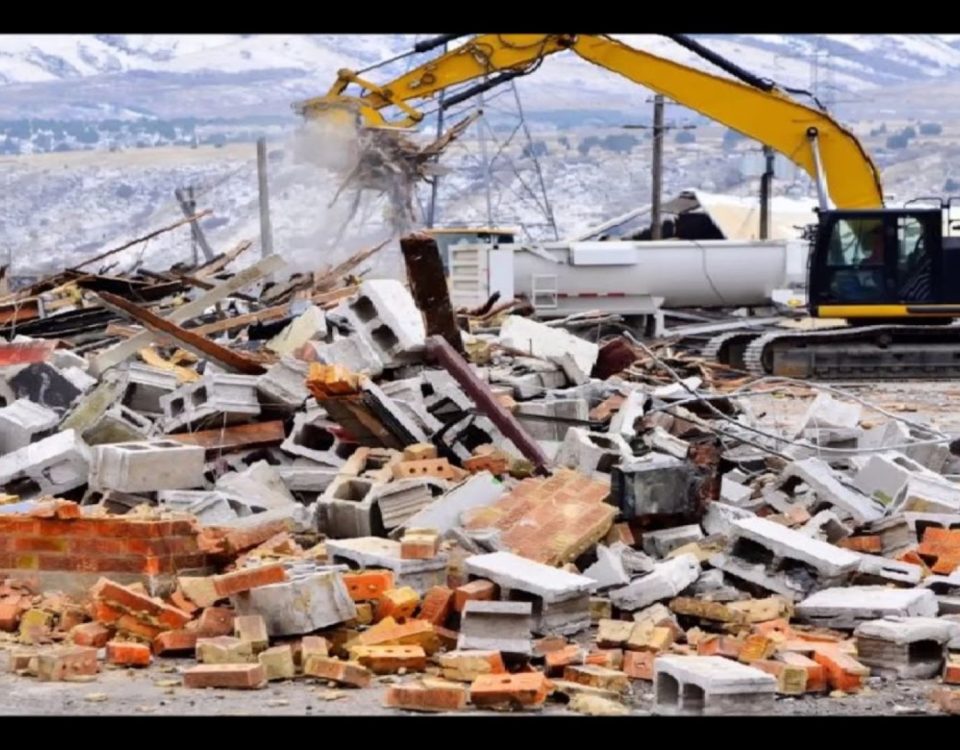- Have any questions?
- +971 50 7210729
- +971 2 2358552
- info@almerzaam.com

Why Choosing the Right Dump Truck Supplier Matters for Your Business?
April 21, 2025Why Proper Demolition Waste Disposal is Crucial for Sustainable Construction?
The construction industry plays a vital role in urban development, but it also generates a significant amount of waste. Demolition projects, in particular, produce large quantities of debris, including concrete, wood, metal, and hazardous materials. If not managed properly, this waste can have severe environmental and health consequences. That’s why demolition waste management is essential for sustainable construction. Proper disposal and recycling of demolition materials help reduce environmental impact, conserve resources, and promote a circular economy.

The Environmental Impact of Demolition Waste
When demolition waste is not managed correctly, it contributes to pollution, land degradation, and resource depletion. The improper disposal of materials like concrete, bricks, and metals leads to the accumulation of waste in landfills, increasing carbon emissions and harming ecosystems. Demolition waste management ensures that materials are reused, recycled, or disposed of in an eco-friendly manner, reducing the negative impact on the environment.
Key Benefits of Proper Demolition Waste Management
1. Reduces Landfill Waste
Construction and demolition debris account for a significant portion of landfill waste. By implementing effective demolition waste management strategies, materials can be sorted, processed, and recycled instead of being dumped in landfills. This reduces the demand for landfill space and minimizes environmental pollution.
2. Promotes Resource Conservation
Many materials from demolition sites, such as steel, concrete, and wood, can be repurposed for new construction projects. Recycling these materials reduces the need for new raw materials, conserving natural resources and lowering energy consumption associated with material production.
3. Decreases Carbon Footprint
The production of new construction materials requires significant energy, leading to increased carbon emissions. By recycling and reusing demolition waste, the energy-intensive process of manufacturing new materials can be reduced, helping to lower the overall carbon footprint of construction projects.
4. Ensures Compliance with Regulations
Many governments have strict regulations regarding demolition waste management to minimize environmental damage. Proper waste disposal practices ensure compliance with these regulations, avoiding legal penalties and promoting responsible construction practices.
5. Enhances Public Health and Safety
Improper demolition waste disposal can lead to air and water pollution, posing health risks to workers and nearby communities. Hazardous materials like asbestos, lead, and chemicals must be handled correctly to prevent contamination and ensure a safe working environment.
6. Supports Sustainable Development
Sustainable construction focuses on reducing waste, conserving resources, and using eco-friendly materials. Effective demolition waste management aligns with these principles, ensuring that construction projects contribute to long-term environmental sustainability.
How Businesses Can Implement Effective Demolition Waste Management
- Sorting and Segregation: Separating materials like concrete, metals, and wood for recycling.
- On-Site Recycling: Crushing concrete for reuse in new construction projects.
- Collaboration with Waste Management Companies: Partnering with experts to ensure proper disposal and recycling.
- Compliance with Environmental Standards: Following local waste management regulations to minimize environmental impact.

Conclusion
Proper demolition waste management is essential for sustainable construction. It reduces landfill waste, conserves resources, and supports environmental responsibility. Among the trusted waste management providers, Al Merzaam Environmental & Transport LLC. stands out for its commitment to eco-friendly waste disposal solutions. By prioritizing responsible waste management, Al Merzaam ensures a cleaner, greener future for the construction industry.


